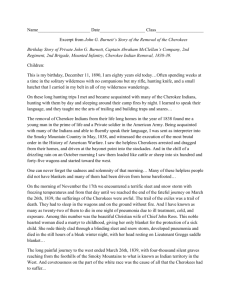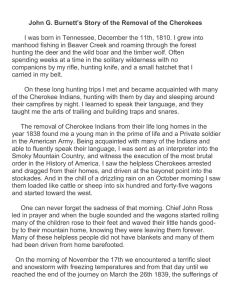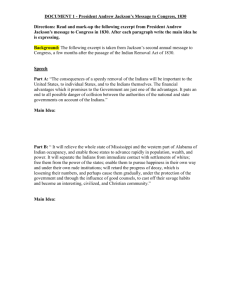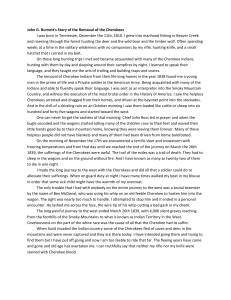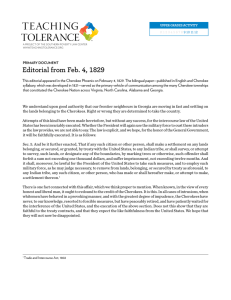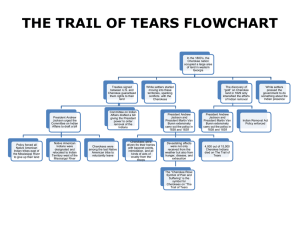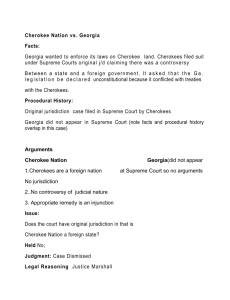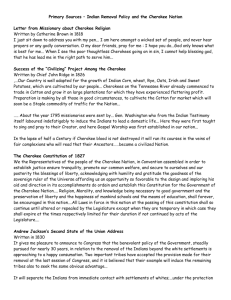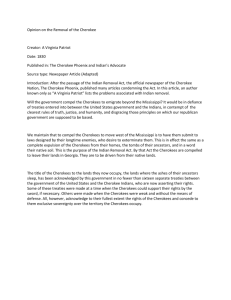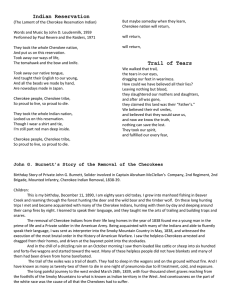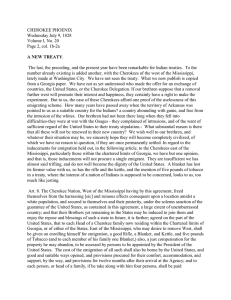John Burnett's Story
advertisement
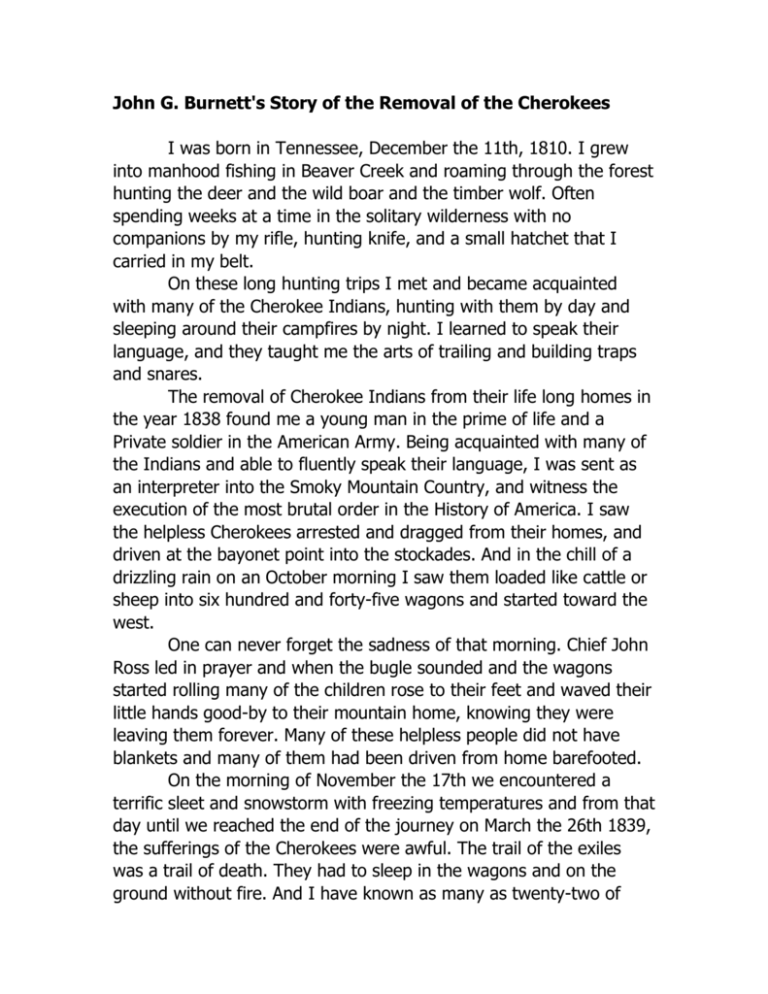
John G. Burnett's Story of the Removal of the Cherokees I was born in Tennessee, December the 11th, 1810. I grew into manhood fishing in Beaver Creek and roaming through the forest hunting the deer and the wild boar and the timber wolf. Often spending weeks at a time in the solitary wilderness with no companions by my rifle, hunting knife, and a small hatchet that I carried in my belt. On these long hunting trips I met and became acquainted with many of the Cherokee Indians, hunting with them by day and sleeping around their campfires by night. I learned to speak their language, and they taught me the arts of trailing and building traps and snares. The removal of Cherokee Indians from their life long homes in the year 1838 found me a young man in the prime of life and a Private soldier in the American Army. Being acquainted with many of the Indians and able to fluently speak their language, I was sent as an interpreter into the Smoky Mountain Country, and witness the execution of the most brutal order in the History of America. I saw the helpless Cherokees arrested and dragged from their homes, and driven at the bayonet point into the stockades. And in the chill of a drizzling rain on an October morning I saw them loaded like cattle or sheep into six hundred and forty-five wagons and started toward the west. One can never forget the sadness of that morning. Chief John Ross led in prayer and when the bugle sounded and the wagons started rolling many of the children rose to their feet and waved their little hands good-by to their mountain home, knowing they were leaving them forever. Many of these helpless people did not have blankets and many of them had been driven from home barefooted. On the morning of November the 17th we encountered a terrific sleet and snowstorm with freezing temperatures and from that day until we reached the end of the journey on March the 26th 1839, the sufferings of the Cherokees were awful. The trail of the exiles was a trail of death. They had to sleep in the wagons and on the ground without fire. And I have known as many as twenty-two of them to die in one night. I made the long journey to the west with the Cherokees and did all that a soldier could do to alleviate their sufferings. When on guard duty at night I have many times walked my beat in my blouse in order that some sick child might have the warmth of my overcoat. The only trouble that I had with anybody on the entire journey to the west was a brutal teamster by the name of Ben McDonal, who was using his whip on an old feeble Cherokee to hasten him into the wagon. The sight was nearly too much to handle. I attempted to stop him and it ended in a personal encounter. He lashed me across the face, the wire tip of his whip cutting a bad gash in my cheek. The long painful journey to the west ended March 26th 1839, with 4,000 silent graves reaching from the foothills of the Smoky Mountains to what is known as Indian Territory in the West. Covetousness on the part of the white race was the cause of all that the Cherokee had to suffer. When Scott invaded the Indian country some of the Cherokees fled of caves and dens in the mountains and were never captured and they are there today. I have intended going there and trying to find them but I have put off going and now I am too feeble to ride that far. The fleeing years have come and gone and old age has overtaken me. I can truthfully say that neither my rifle nor my knife were stained with Cherokee blood.
